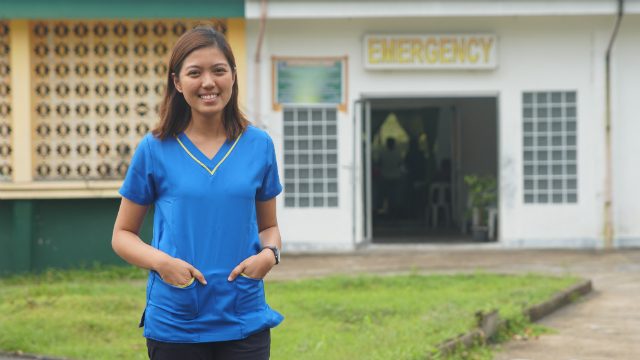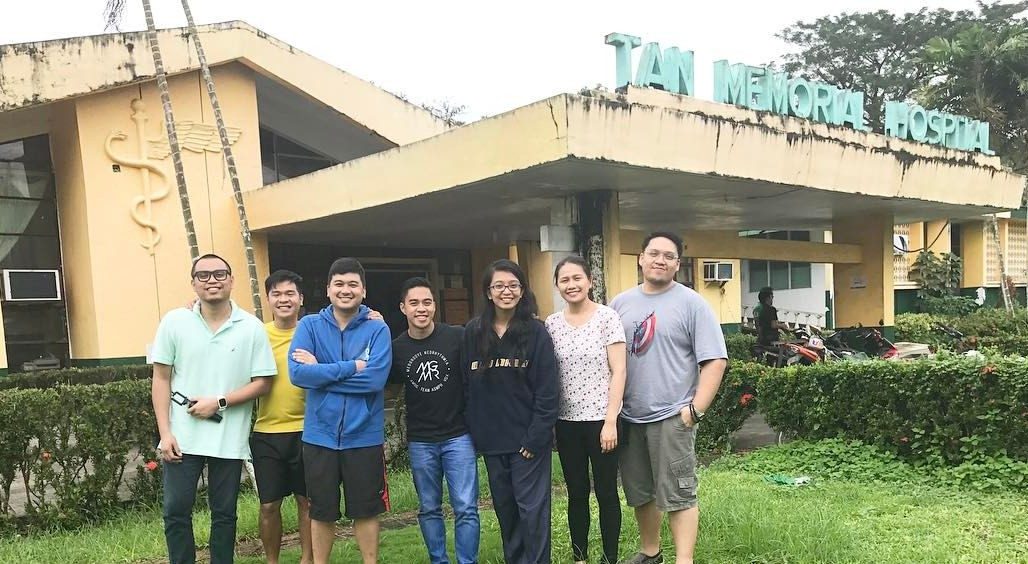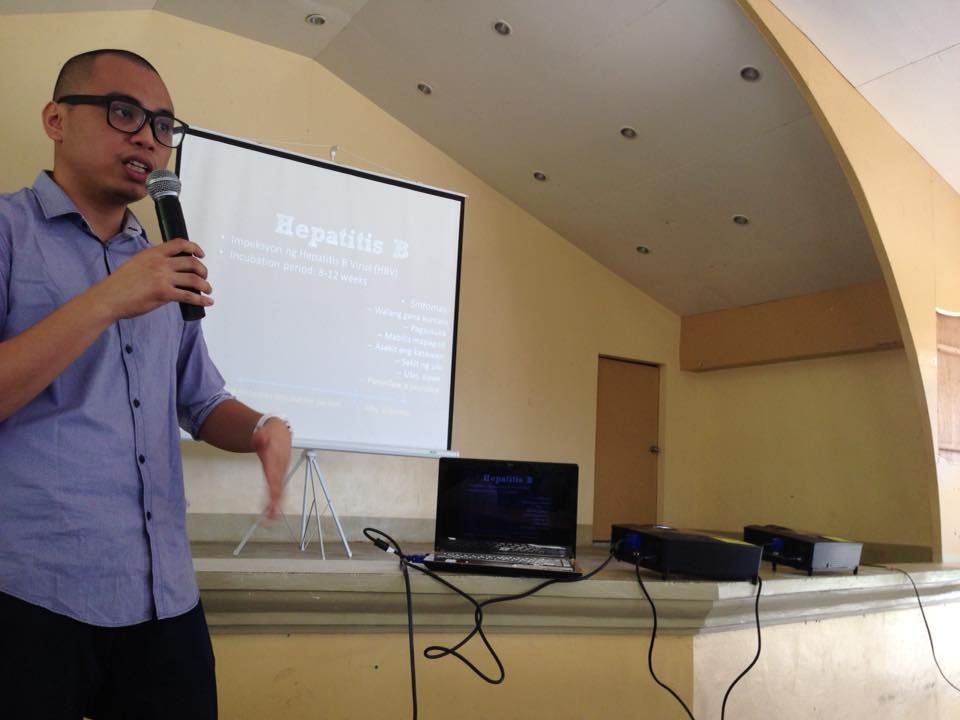SUMMARY
This is AI generated summarization, which may have errors. For context, always refer to the full article.

NORTHERN SAMAR, Philippines – How far are you willing to go to serve the country?
For medical doctors Mixie Baduria and Alfonso Regala, it is in the far-flung town of Laoang in Northern Samar.
Baduria and Regala graduated from the Ateneo School of Medicine and Public Health in 2015. They got their license in September of the same year.
“After graduation, the conventional path for new doctors was to get a specialization. The public health sector is neglected while the need is biggest there. Coming from college, we were trained to find where the greatest need it and fill it,” Regala said in a mix of Filipino and English.
The doctors found out about Laoang due to a study being conducted by the Ateneo Center for Health Evidence and Leadership (A-HEALS) in Region 8, which found the need for more medical professionals in the province.
It was ASMPH Dean and former health secretary Manuel Dayrit who facilitated the arrangements with the provincial government of Northern Samar. And in January 2016, the two doctors and their other colleagues from ASMPH officially started their stay at the Dr Gregorio Tan Memorial Hospital in Laoang.
The assignment was supposed to last only for 6 months. But until now, the doctors are still in the town.
“Before, everything was set in my head that I’ll take residency after graduation and the boards. But things happened in med school and I realized that I want to be in the community for a longer time,” Baduria said.
‘Not a hard choice’

For the doctors, the choice to go and stay in Laoang was not hard despite the fact that they both grew up in the city.
“They weren’t surprised. They knew I was mature enough to make my own decisions. Actually, they felt a slight relief because I always tell my dad I wanted to be a Jesuit…But they weren’t surprised because I was geared towards public health since college,” Regala said.
For Baduria, it was the first time she was away from home.
“It became a difficult decision for me because of my parents. I told my parents I just wanted a break. Come June 2016, I’ll try to go for a mid-year residency in pediatrics. Give me 6 months to take a break, breathe, and explore the community,” Baduria said.
She added: “The challenge is actually more of adjusting to a life on my own away from Manila. Also, the language barrier is a challenge.”
Face of poverty, state of healthcare
The experience has shown the doctors the face of poverty and the real state of healthcare in the country.
One story Regala encountered in Laoang was a case of a mother who gave birth to her baby pre-term. The premature baby required oxygen to live.
“An oxygen tank costs P1,600 and they’ve already spent for 5 or 6 tanks. Imagine that spending for a daily wage earner,” Regala recalled.
When the tank eventually ran out, the parents wanted to take the baby home. Without the oxygen, the baby would die, the doctors advised.
“The parents said that they would just take the baby home because they have 5 other kids in a far-flung village that still needed to live. They were giving up on the baby,” Regala said.
He added: “You’d think that the way parents valued their children’s lives was basic and equal but because of circumstances, the ordinary for us becomes extraordinary for them. It’s just to maintain life, not prolong, and they are pushed to choose (between their children).”
The gaps in the healthcare system are glaring, as the doctors observed in their assignment.

“Doctors are concentrated in the city centers. In Catarman, for exampe, there are 70 plus doctors. So there are doctors but they are not appropriated properly,” Regala said.
Regala also noted how procurement is very bureaucratic, making the problem systemic.
“There are those who really benefit from the existing system. So we are trying to involve all stakeholders. For example, in the province, we are trying to address the procurement of drugs. But apparently, other hospitals don’t know the process of procurement,” Regala added.
Opportunities to serve
For Baduria, her greatest learning in Laoang is that healthcare does not end with the patient dying.
“During my first few duties here, we had mortalities that we can’t really avoid. But what really struck me here was after the patient had expired, the relatives came back to us, thanking us and giving us food. They are really appreciative of the care,” she recalled.
Baduria added: “That’s when I realized that patient care doesn’t end when the patient expires because we can still do something for the families and that’s the full circle of patient care.”
More doctors are needed in the public health system and the doctors encourage their colleagues to serve in far-flung communities like Laoang.
“Just don’t be afraid take that step towards the communities. It’s more exciting than scary. Just take the leap and don’t be afraid because there’s a lot to explore,” she added.
For Regala, the fact that there are a lot of gaps means that there are many opportunities to serve.
“Poverty is transcendent of generations and themes. But the opportunity it presents is also transcendent. I believe people want to contribute but they just don’t have the right platform. And that’s why I enjoy our work here. Clinical work is tiring, yes, but we always look forward to interacting with the municipal and provincial governments to help them bridge the gaps,” he added.
There are a lot of problems to solve in the healthcare system of poor towns and communities. But the town of Laoang in Northern Samar can rely that Baduria, Regala, and their colleagues will continue to stay. – Rappler.com
Add a comment
How does this make you feel?
There are no comments yet. Add your comment to start the conversation.